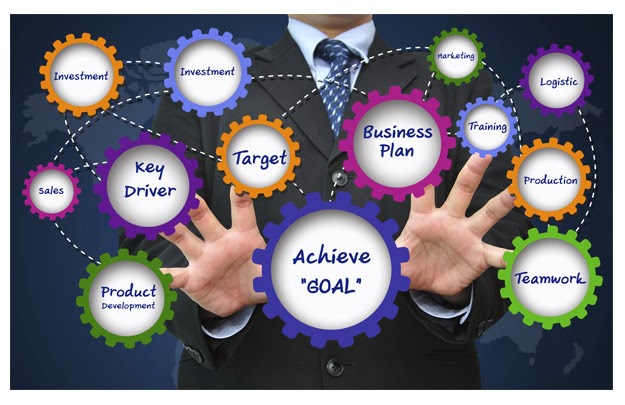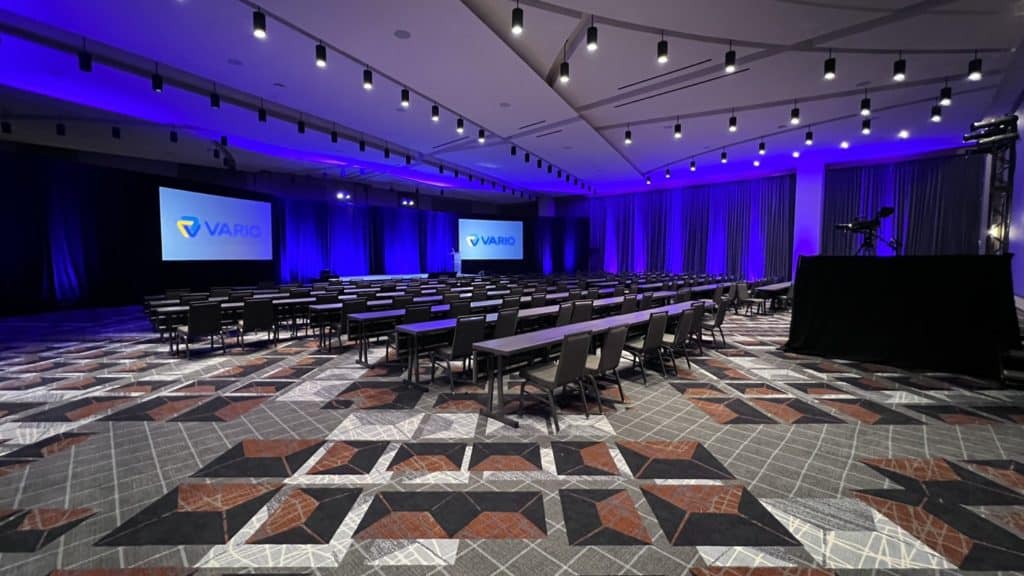A Deep Study How Event Management Works to Create Unforgettable Experiences
Event management is a complex technique that incorporates various aspects to craft extraordinary experiences. It calls for a clear understanding of the event's purpose and target market. Organizers should browse budgeting, logistics, and advertising and marketing to guarantee a smooth execution. Each part plays a crucial function in accomplishing the desired impact. Nevertheless, the journey does not end with the event itself. There are insights to reveal that can shape future ventures.
The Fundamentals of Event Management
Effective event management includes a variety of important principles that assist the planning and execution of successful events. At its core, it includes recognizing the event's purpose, audience, and preferred results. Recognizing the target demographic is vital, as it educates decisions associated with web content, marketing, and logistics.
Budgeting is another essential element, ensuring that sources are alloted successfully while satisfying the event's purposes. This consists of planning for unpredicted expenses that may develop.
Time management plays a crucial role, as event managers should establish an in-depth timeline to work with various jobs and landmarks.
In addition, reliable interaction among stakeholders, vendors, and staff member is necessary to guarantee alignment and stay clear of misconceptions.
Danger management should be considered, with contingency strategies in area to resolve possible obstacles, therefore improving the total experience for guests and assuring a smooth implementation of the event.
Trick Functions in Event Preparation
In event planning, recognizing crucial functions is essential for effective execution. The event planner is in charge of overseeing logistics and ensuring all facets straighten with the vision. Additionally, reliable vendor management is important for preserving quality and cultivating strong partnerships throughout the preparation process.
Event Organizer Duties
An event planner manages the intricate aspects of event preparation, ensuring smooth implementation from conception to final thought. They are in charge of conceiving the event theme, setting budgets, and developing timelines to keep the project on course. Control with stakeholders, consisting of clients, venue supervisors, and volunteers, is vital to align assumptions and help with communication. The planner also supervises logistics, such as wedding catering, transportation, and modern technology needs, ensuring all elements operate sympathetically. They conduct site check outs, take care of timetables, and troubleshoot concerns that might arise during the event. Post-event, the coordinator examines the event's success, collecting responses and analyzing end results to inform future projects. This multifaceted role calls for solid business skills, focus to information, and efficient social communication.
Vendor Management Basics
Steering through the landscape of vendor management is vital for successful event planning. Efficient supplier management includes determining, choosing, and collaborating vendors that supply important solutions, such as food catering, audiovisual support, and decoration. Event organizers have to preserve strong communication with suppliers to ensure that all aspects align with the event's vision. Key functions consist of the vendor supervisor, that oversees agreements and settlements, and the logistics planner, in charge of on-site arrangement and execution. It's necessary to establish clear expectations and timelines, cultivating a collaborative setting that improves the overall experience. By focusing on these aspects, event organizers can browse potential obstacles, making sure that every information adds to a smooth and unforgettable event.
Crafting a Vision: Concept Growth

When a vision is developed, it becomes vital to translate it right into actionable parts. This includes specifying the ambience, selecting proper places, and determining the event's style. Working together with stakeholders, consisting of enrollers and partners, additionally fine-tunes the principle, making certain that all parties share an unified understanding of the event's purpose. Eventually, a well-developed vision not only improves guest involvement yet additionally establishes the phase for remarkable experiences that reverberate long after the event ends.
Budgeting and Resource Appropriation
With a clear vision in position, the next action in event management entails careful budgeting and source appropriation. This critical phase assurances that all needed elements are funded and lined up with the event's objectives. Event managers start by approximating prices related to location option, catering, entertainment, and marketing. They develop a thorough spending plan that details each classification, enabling for transparency and accountability.
Resource allowance extends past funds; it likewise encompasses personnels. Recognizing team roles, duties, and timelines is vital to guarantee performance. Event supervisors should also take into consideration contingencies for unexpected expenditures or changes in extent, establishing a buffer within the budget.
Prioritizing investing on aspects that enhance visitor experiences is crucial. By strategically assigning sources, event managers optimize impact click this link while maintaining economic control. This regimented method not only cultivates successful occasions yet likewise constructs trustworthiness and trust with stakeholders and participants.
Logistics: The Foundation of Event Execution
While budgeting prepares for an event, logistics act as its foundation, guaranteeing that every element is implemented smoothly and efficiently. charlotte event companies. This includes a vast range of tasks, including location choice, transport arrangements, helpful resources and equipment procurement. Reliable logistics management needs thorough planning and sychronisation to ensure that all aspects straighten with the event's timeline and objectives
Key parts of logistics include stock management, where materials and products are tracked to stop scarcities, and staffing, which includes recruiting and training workers to deal with different tasks. Interaction is likewise vital, as it promotes collaboration amongst vendors, sponsors, and the event group.

Advertising And Marketing and Promo Approaches
Reliable marketing and promo strategies are important for making best use of presence and involvement at an occasion, as they create interest and excitement amongst possible individuals. Event managers employ a mix of conventional and electronic advertising and marketing methods to reach their target audience. Social media site systems, e-mail campaigns, and targeted ads are typically made use of to produce buzz and foster community interaction. Cooperations with influencers or industry leaders can improve integrity, while engaging content such as video clips and testimonies can resonate with potential guests.
On top of that, leveraging event-specific hashtags and producing shareable graphics motivates organic promotion amongst participants. Early bird ticket offers and exclusive promos can incentivize enrollment, additionally boosting rate of interest. A well-designed internet site that over at this website offers very easy navigating and clear info about the event can enhance the customer experience. By executing these advertising and marketing and promotion approaches, event managers can assure higher exposure and ultimately produce a memorable experience for all participants.

Determining Success: Feedback and Examination
Success in event management rests on durable feedback and assessment mechanisms. These procedures are important for establishing the efficiency of an occasion and identifying locations for improvement. By gathering input from participants, organizers can examine contentment levels, recognize preferences, and assess overall effect. Studies and interviews serve as beneficial tools for gathering quantitative and qualitative information, permitting for extensive analysis.
Additionally, evaluating vital performance indications (KPIs) such as attendance prices, interaction levels, and return on investment (ROI) supplies a more clear photo of event success. Post-event debriefing sessions with the planning team likewise add understandings, cultivating a society of continuous improvement.
Eventually, an organized strategy to comments and analysis not only improves future events however additionally reinforces relationships with stakeholders. By executing these methods, event supervisors can develop remarkable experiences that reverberate with individuals and drive recurring involvement.
Often Asked Concerns
How Do Event Managers Take Care Of Unforeseen Obstacles Throughout an Event?
Event managers address unanticipated obstacles by remaining tranquility, evaluating the situation, and implementing backup strategies - charlotte event companies. They interact efficiently with their team, adapt quickly, and focus on services to guarantee the event continues efficiently and effectively
What Innovation Tools Are Essential for Modern Event Management?
Vital innovation tools for modern event management consist of event enrollment software application, job management applications, attendee involvement systems, and analytics tools. These sources streamline processes, boost communication, and improve total event experiences for organizers and participants alike.
Just How Do Cultural Distinctions Effect Event Planning and Implementation?
Cultural distinctions considerably influence event preparation and execution. They influence motifs, customizeds, interaction styles, and assumptions, requiring tailored methods to guarantee inclusivity and regard, eventually shaping the overall experience and success of the event.
What Are the Moral Factors To Consider in Event Management?
Honest considerations in event management encompass openness, sustainability, social sensitivity, and inclusivity. Planners have to prioritize fairness, respect varied audiences, minimize ecological impact, and guarantee access to create accountable and memorable experiences for all individuals.
Just How Can Sustainability Be Integrated Into Event Planning?
Sustainability can be integrated right into event planning by making use of eco-friendly products, reducing waste, sourcing local suppliers, executing carbon offset programs, and advertising digital options to reduce paper use, consequently enhancing ecological consciousness within the event's structure.